Extendable toolbox through ready-to-use or tailored plugins.


















QIAGEN CLC Genomics Workbench contains all features included in QIAGEN CLC Main Workbench, as well as several additional features.
All features of QIAGEN CLC Genomics Workbench are included in QIAGEN CLC Genomics Workbench Premium.

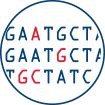
QIAGEN CLC Genomics Workbench supports the complete resequencing pipeline for detecting and comparing genetic variants. When dealing with high sample volumes, efficient algorithms reduce run time while customizable analysis workflows and batch processing shorten hands-on time to a minimum, so you can focus on the biological interpretation of detected variants. The Biomedical Genomics Analysis plugin delivers a range of ready-use-workflows and tools for the analysis of panel data.
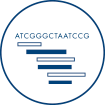
The first step in resequencing is accurate read mapping. Our algorithm is optimized for high-quality mapping of large data volumes in a fast and memory-efficient way.
The algorithm offers comprehensive support for a variety of data formats, including both short and long reads, and all flavors of paired read data regardless of insert size or read orientation. It also supports the use of hybrid data sets. Local realignment can drastically reduce false positive detection rates for certain variant types.

Recent improvements promise deeper insights into transcriptional regulation even in the absence of control samples. Transcription factor ChIP-seq exposes defined peak regions characteristic of transcription binding sites throughout the whole genome. All made accessible through our tried and trusted interactive graphical user interface. Discover more in our solutions for epigenomics.

Cytosine methylation is probably the best-studied form of epigenetic regulation of gene expression. The Bisulfite Sequencing plugin for CLC Genomics Workbench offers an all-in-one solution to common problems that scientists face when studying cytosine methylation data. Find out more about our features for epigenomics.

Workflows streamline selected tools into one analysis. Workflows can be run in batch making them a powerful tool for processing large numbers of samples with minimal user interventions. You can easily set up your own workflows and create and share workflow installer files with colleagues or other researchers following your scientific publications. Several add-ons introduce preconfigured example workflows to get you from data to publication faster.

Our prized de novo assembler accompanied by trimming tools to remove low quality data deliver assembly quality fast and compute resource efficient. Like for our read mapper, a wide range of NGS data types is supported, and hybrid assemblies combine the unique strength of short and long reads for optimal results. If assembly of long reads (like PacBio) is what you need, you can use our Long Read Support plugin. For genome finishing capabilities, upgrade to QIAGEN CLC Genomics Workbench Premium which gives you access to CLC Genome Finishing Module.
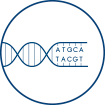
RNA-Seq tools integrate all the analysis steps – from secondary analysis of the reads to sophisticated statistics – into easy-to-use workflows, and gives access to a wide range of experimental designs, from case-control or multi-group experiments to multi-factorial experiments. All tools account for differences due to sequencing depth, removing the need to normalize input data. Multi-factorial statistics control for batch effects and support paired studies. Statistical results can be visualized in a genomic context as tracks, in a table view, or through the many visualization options leveraging metadata: volcano plots, 2D Heatmaps, Principal Component Analysis and Venn diagrams.

Acetylation of histones is an important epigenetic adaptation associated with chromatin decondensation and up-or down-regulated gene expression. The Histone ChIP-Seq plugin for CLC Genomics Workbench detects evidence for Histone acetylation marks in genes or other predefined genomic regions. Learn more about our features for epigenomics.
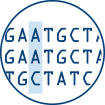
CLC Genomics Workbench offers a range of accurate variant detectors to detect single nucleotide variants (SNVs), multi-nucleotide variants (MNVs), small-to medium-sized insertions, deletions or replacements, as well as copy number variants (CNVs) and other large structural variants. Algorithms for the sensitive detection of so called “low-frequency” variants supported only by a small fraction of mapped reads complete the detection tools. To make sense of detected variants CLC Genomics Workbench offers a range of filter and comparison tools.
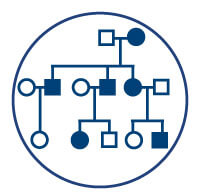
*Release coming soon
The Haplotype Caller is based on a variant representation that allows direct import, export and validation of variants and supports phasing information. The underlying genome model delivers variant locus, allele variants, haplotype alleles and haplotypes. Genotype and zygosity annotations are supported.
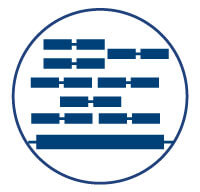
The Long Read Support plugin provides a range of tools for working with long, error-prone reads, typically produced by PacBio or Oxford Nanopore sequencing technologies.

With CLC Genomics Workbench you can enjoy more tools that belong into every bioinformatician’s repertoire. Enjoy a rich set of cloning tools, multiple sequence alignment and phylogenetic tools, support for sanger sequencing, create your own BLAST Searches, design PCR or real-time PCR primers, and take advantage of 10 years of molecular biology tool development. The full set of tools from CLC Main Workbench is included. Now with a plug-in for Whole-Genome Alignment.